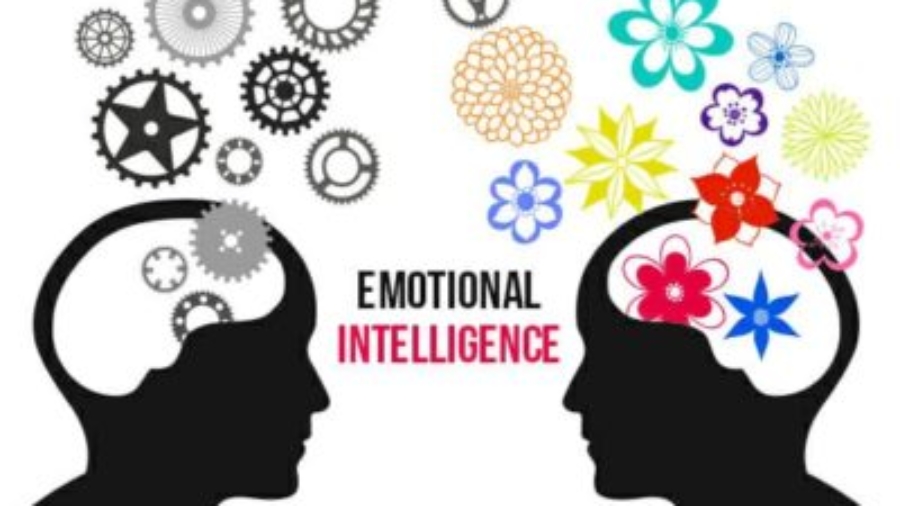We need leaders and effective executives to transform any organization. But what makes leaders is not higher IQ or even technical capabilities; it is higher emotional intelligence (Goleman, D., 1998). In order to achieve success, leaders need to be emotionally intelligent; in addition to acquiring qualities such as “intelligence, toughness, determination, and vision”. Emotional intelligence includes five components: self-awareness, self-regulation, motivation, empathy and social skills.
Emotional intelligence can be measured and improved through “persistence, practice and feedback from colleagues and coaches”. Different situations require different leaderships. Nowadays even effective executives need to have high emotional intelligence to achieve maximum performance. Some companies have developed “competency models” to identify, train and promote leaders in their companies. In these “competency models” usually technical skills, cognitive abilities and emotional intelligence are measured. The research shows that highly effective leaders acquire between 7 to15 attributes such as “initiative and strategic thinking”. Though cognitive skills and intellect have been important for outstanding performance, emotional intelligence has shown to be twice as important as any other ingredients for excellence in performance. The higher the position of the person in the organization, the more important is the role of emotional intelligence to achieve excellence in performance.
For learning and improving emotional intelligence we need to develop a growth mindset. A mindset that believes that emotional intelligence is very important in leadership and effective management and is learnable.
1. Self- awareness
Emotionally intelligent people are self- aware of their own “emotions, strengths, weaknesses, needs, and drives”. Self-aware people are honest with themselves and with others. They make decisions; which are in accordance with their values. They speak about their emotions and the possible impact of their emotions on job performance. Self-aware people admit failure openly and often welcome constructive critiques (growth mindset). Identification of self-aware people can be done through performance reviews, as they speak freely about their strengths, weaknesses and limitations. Self-aware people have self-confidence and they don’t hesitate to ask for help when they need it and don’t take responsibility for tasks that they think they can’t perform properly.
2. Self- regulation
Emotional intelligent people control their feelings and emotions through self- regulation and make them constructive. Self- regulation helps emotional intelligent people to be reasonable in their judgment and help them to foster an environment of trust and fairness. Self- questioning is a part of self regulation and helps to reflect about failures, successes, opportunities and threats. Self- regulation also helps to cope with changes, because controlling feelings is essential to manage changes in the environment. Self- regulation improves learning capabilities, helps quick adaptation to changes and enhances integrity.
3. Motivation
Any leader has a great motivation for achievement. Leaders need something beyond external motives such as status or highly paid position, but they have inner motives and desire to achieve their goals. The first indicator of inner motives of leaders is the passion for what they work on. They do their best to get the job done, encounter challenges with enthusiasm and are passionate to learn. They look for a non- stop improvement and question themselves and others to find a better way to get the job done. They are optimistic and monitor the progress of tasks. Self- regulation and the drive to achieve help leaders to manage failures and change them to opportunities (growth mindset). When failures happen, leaders don’t blame external factors and conditions that are not in their control, but they take responsibility and seek solutions. Leaders promote passion for their job throughout the organization and that creates commitment among the organization’s people. And this commitment is important to retain employees and sustain improvement.
4. Empathy
Empathy is the easiest in emotional intelligence components to recognize. People with empathy are compassionate and caring about others. In organization, empathy means considering employees’ feelings and emotions while taking decisions. Emotional intelligent people acknowledge others’ feelings such as fear and passion. Nowadays empathy is important due to the increasing need of teamwork, rapid changes in globalization and talent retention. Empathy helps leaders to listen to others thoughtfully, understand the body language, and admit “the existence and importance of culture and ethnic differences” (worldly mindset).
Empathy is the key factor in retention of talents and decreasing costs associated with human resource management. Coaching and mentoring are effective ways to listen and understand people in organization and find out their motives and concerns. The empathy message is very simple: care about people, and then they will care about you.
5. Social skills
Social skills and empathy are two components of emotional intelligence that are related to the ability to manage our relationship with others. Social skills help managers to communicate effectively and direct people in the organization to the desired path. Socially skilled people have the ability to recognize common interests with all kinds of people and connect with them. All great jobs are done in teams and social skills are of ultimate importance in the relationship of team members. Actually all other components of emotional intelligence are needed to apply social skills and they are an important key in leadership. Through social skills emotional intelligence manifests in action. People can manage their relationship with others when they are aware and in control of their own feelings and emotions and they understand and care about others’ feelings and emotions.
Leaders motivate others to get the job done. In order to align people in organization, leaders need to manage their relationship effectively and social skills are very important for that. Leaders need social skills to connect with people, stimulate motives and drive to achieve, and set vision and direction.
In order to improve emotional intelligence, we need to change our mindset to growth mindset and believe that emotional intelligence is learnable.
- Goleman, D. 1998. What Makes a Leader?. Harvard Business Review.

